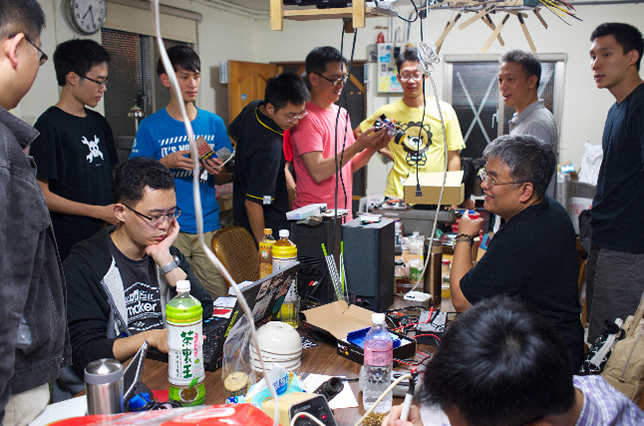Indiana U Researchers Land $1.3 Million NSF Grant to Study 'Making'
Two professors at Indiana University will spend four years finding the best practices that can generate economic activity through maker spaces in Asia and the U.S. Midwest.

Indian University researchers hope to adapt some of the practices of makers at OpenLab Taipei in Taipei, Taiwan, among others.
Two associate professors at Indiana University have received a $1.2 million grant from the National Science Foundation to learn how the "making" trend can be a driver for the U.S. economy, particularly in the Midwest.
Shannon and Jeffrey Bardzell will study "success stories" associated with maker collectives, repair practices and "hackerspaces" in Taiwan, China and the U.S. Midwest to determine how making can be turned into economic activity.
"Many academic and industry experts believe that making is a harbinger of a new era of computing," Jeffrey Bardzell said. "They see computing as increasingly distributed across networks of everyday objects, not gathered together in a single box, like a desktop computer."
The researchers said that maker collectives in place, particularly in Shenzhen, China, and Taipei, Taiwan, have led over the years to business startups. Their hope is to learn some best practices that can be applied in the United States.
"In Shenzhen and Taipei, making is serious business," said Shaowen Bardzell, who co-directs the Cultural Research in Technology Group at the university, "with billions of dollars in public and private investment flowing in."
More specifically, the two will spend the next four years documenting and analyzing practices in policies that support serious makers and maker spaces in the three different cultures. One of their goals will be to encourage international partnerships and the sharing of best practices.
They will conduct four summer school workshops — two in Asia and two in the U.S. — to bring makers from both continents together to produce how-to guides, kits, policy recommendations, curricula and computer hardware that could support professional making.
The summer workshops will be extensions of a conference the researchers organized at Indiana University last year called "Making Subjects."
In the U.S., the Bardzells will focus on the making communities in Michigan; Bloomington, IN, home of Bloominglabs; and Indianapolis, home of Club Cyberia.
About the Author
Michael Hart is a Los Angeles-based freelance writer and the former executive editor of THE Journal.